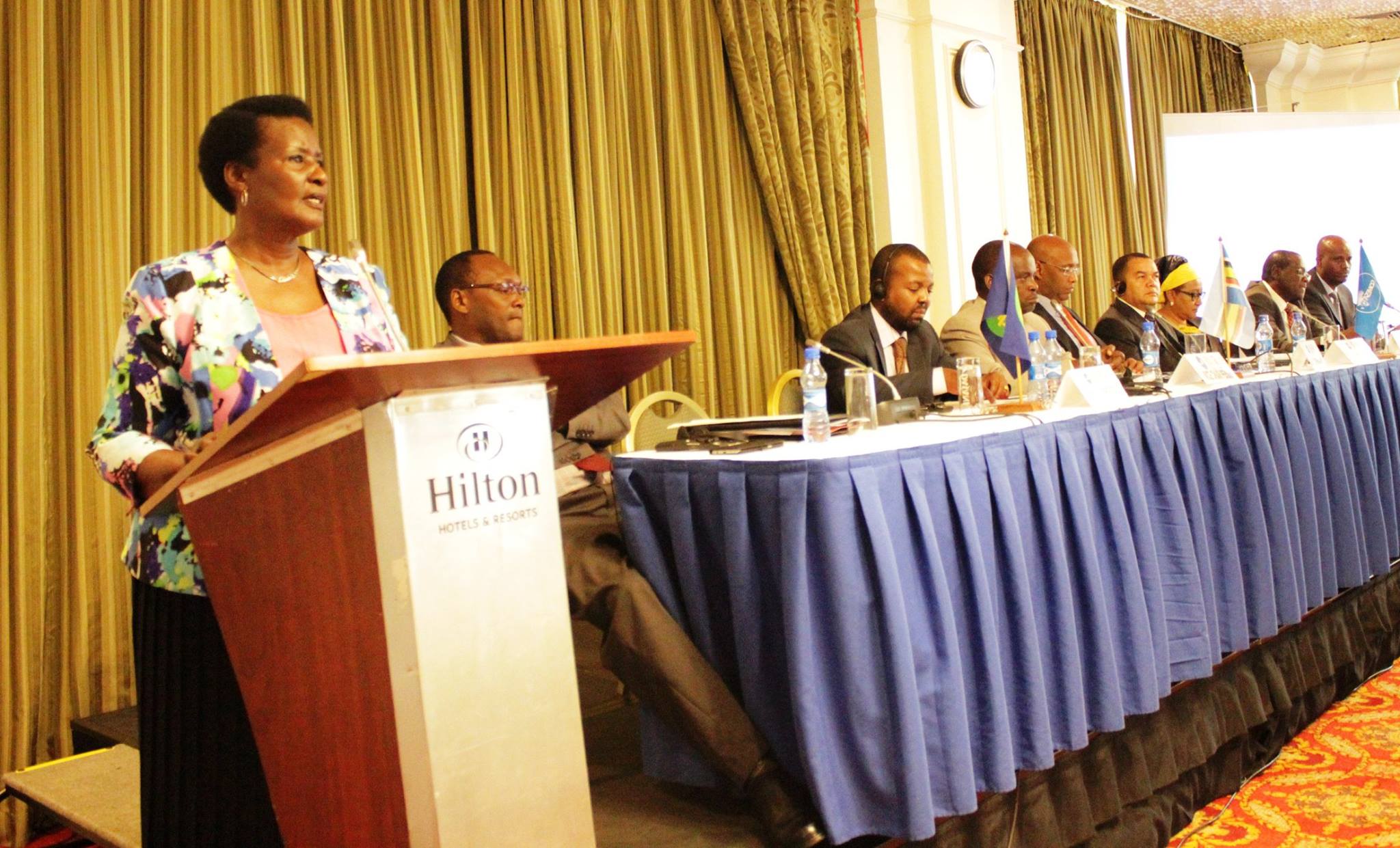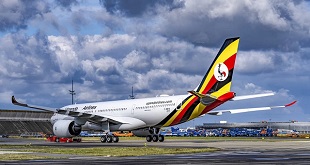
Uganda’s Minister of Trade Amelia Kyambadde has said the country is ready to ratify the EAC-COMESA-SADC Tripartite Trade Agreement before June 2017 and start implementation so as to benefit from a proposed free trade arrangement.
Speaking at the end of a regional meeting in Nairobi on Sunday, Kyambadde said it was unfortunate that EAC, COMESA and SADC are currently trading less with each other, than with the rest of the world.
According to the United Nations Economic Commission for Africa (UNECA), intra Africa trade is about 11% of the continent’s trade with the rest of the world, as compared to 50% among Asian countries, 75% intra EU and 60% intra Northern America.
Kyambadde, together with trade ministers from five out of the 26 member states of the three African regional economic communities – East African Community (EAC), Common Market for Eastern and Southern Africa (COMESA) and Southern Africa Development Community (SADC) – called on other member states to expedite the signing and ratification of the Tripartite Free Trade Area (TFTA) Agreement.
“It is estimated that in sub-Saharan Africa, where some of us are located, 41% of the population is living on less than $1.25 a day. This is more than twice as high as any other region,” said Kyambadde as ministers from Uganda, Kenya, Zambia, Namibia and Madagascar released a joint statement during the closure of the 5th meeting of the Tripartite Ministerial Council at Hilton Hotel in Nairobi, Kenya.
“This segment of our population and indeed the whole region must be lifted out of this situation into wealth and prosperity. The way to do this is through trade and investment, and the TFTA process holds significance in terms of improving our intra-regional trade and investment”, noted Kyambadde.
The Tripartite FTA represents an integrated market of 26 countries with a combined population of 632 million people which is 57% of Africa’s population. This has a total Gross Domestic Product (GDP) of USD$ 1.3 Trillion (2014) representing 58% of Africa’s GDP.
If fully implemented, the Tripartite FTA provides expanded trade opportunities to Uganda’s private sector, Kyambadde said. At the same time, it would represent a large area to leverage the country’s young, dynamic and potentially very productive labour force.
Kyambadde gave the example of South Africa, a member of SADC currently charging 10% tax on vegetable oils and fats like sun flower oils, soya bean oils, 20% on raw coffee, 400 cents per kilo of tea, 25% on fresh juices.
This has prevented Uganda’s tea, coffee, vegetable oils, fresh juices and many other products from entering the South African market because they cannot compete. The tripartite will unlock this market allowing Ugandans to export under duty free quota free arrangement.
During the 3-day meeting, the ministers agreed on a number of issues that will ensure the speed up of the first phase negotiations of TFTA agreement that focuses on trade in goods. They agreed that all the negotiating parties should finalize their bilateral tariff negotiations, and negotiations on other elements including Rules of Origin, Trade Remedies and Dispute Settlement mechanism by end of March 2017.
The Ministers approved specific agreements that are aimed at improving the conduct of trade in the EAC-COMESA and SADC region. These agreements include quality and standards, and trade facilitation which outlines the ease with which goods move across the borders.
On the movement of business persons, the ministers directed the specific tripartite technical committee focusing on movement of business persons to finalize the draft framework on the March 2017 and submit to the Ministerial Council at their next meeting.
****
editor@independent.co.ug
 The Independent Uganda: You get the Truth we Pay the Price
The Independent Uganda: You get the Truth we Pay the Price



